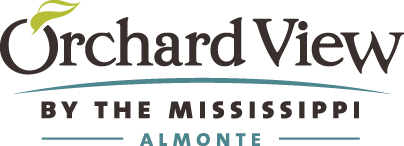What is the difference between a PSW, RPN, RN, and NP?
Basically, it is education and, therefore, scope of practice. The healthcare team of front line workers consists of Personal Support Workers, Registered Practical Nurse, Registered Nurse, Nurse Practitioners. RPNs, RNs, and NP are governed in Ontario by the College of Nurses of Ontario.
Each province and territory has control of its healthcare system. This is why Quebec, for example, is moving forward on legal medical aid in dying in Canada.
Personal Support Workers
PSWs are unregulated workers. There is no way of checking their credentials, or determining if they have been disciplined, or whether they have education in various specialties. Their knowledge, skills and abilities vary with the individual, determined, largely, by their employer.
I have written previously about the scope of practice for PSWs, formerly Health Care Aides (HCA) who have a certificate in order to work in healthcare, or home care. They work under the direction of the Charge Nurse in hospitals, retirement homes, long-term care, in private homes, and for the many for-profit agencies that deliver home care. There are not permitted to do any invasive procedures. They are not licenced to administer drugs, or do anything that invades a body. That does not mean that a supervisor will not assign these tasks. In fact, in the circles I travel, this can be common in particular settings. This is where we must speak truth to power, and where watchdog agencies fall through.
Personal Support Workers provide assistance with all activities of daily living. They are trained to perform care related to dressing, bathing, ambulation and transfers, skin integrity monitoring, incontinence and toileting, and basic medication administration by way of a basic pharmacology course. They also learn to identify mild behavioural changes.
RPN, RN, NP
The CNO keeps statistics of its nurse members. You must be a member of the College in order to practice in Ontario. The scope of practice of nurses in Ontario (PDF) is regulated:
ii. Controlled Acts Authorized to Nurses
The Nursing Act, 1991 authorizes nurses to perform
three controlled acts. They are:
1. performing a prescribed procedure below the dermis or mucous membrane
2. administering a substance by injection or inhalation
3. putting an instrument, hand or finger:
◗ beyond the external ear canal
◗ beyond the point in the nasal passages where
they normally narrow
◗ beyond the larynx
◗ beyond the opening of the urethra
◗ beyond the labia majora
◗ beyond the anal verge, or
◗ into an artificial opening in the body.
The nurse is accountable for:
■ her or his actions and decisions
■ knowing and understanding the roles and responsibilities of other team members, and collaborating, consulting and taking action on
client information when needed
■ taking action to ensure client safety, including informing the employer of concerns related to the
conduct and/or actions of other care providers,
and
■ collaborating with clients, with each other and with members of the interprofessional care team
for the benefit of the client.
RPN’s are trained to work within their scope in a 2 year diploma program. Hospitals employ RPN’s in emergency rooms, Surgical rooms, post-operative surgical floors, medical floors, dialysis, clinics m they initiate and monitor IV therapy and blood transfusions, read ECG’s and collaborate with patients’ primary physician. Long term care employs RPN’s as the floor nurses, to administer medications, complete treatments and wound care, assess falls, admit patients to homes, complete RAI and MDS reports for the Ministry, provide palliative care, collaborate with physicians etc. RPNs are hired in home care to provide the full scope of practice, including IV therapy, home dialysis, palliative care, well person checks etc. and also collaborate with physicians. Retirement homes work much like LTC in the way of providing care for residents. However, as of present, the Ministry of Health does not fund care into Retirement homes, therefore, retirement homes must work collaboratively with community liaison’s funded by the LHIN’s in order to complete the full continuum of care. RPN’s are generally given more stable and non-acute care patients, however, the scope and education continue to change, and in the last 15 years, the RPN scope of practice has increased astronomically.
RPN’s can take additional courses like Operating Room, Pre-Natal Care (Mother baby unit), Psychiatric Care and specialize in gerontological care, and management in retirement homes.
RN scope of practice is a 4- year degree program (in which was changed around 2005, from a 3 year diploma program) Diploma RN’s were given an option to complete their degree within a certain timeframe in order to maintain their license in hospital settings. If RN’s failed to comply with the Ministry request, a lot of the old RN’s now practice in hospitals as Orderly’s or PSW’s. RN’s can now take additional courses specializing in ICU, Hospital and Long-term care management, Operating Room, advance in their professions as masters, Nurse practitioner and PhD. Hospitals use RN’s in more unstable and acute care issues, that may need quick interventions.


Leave a Reply